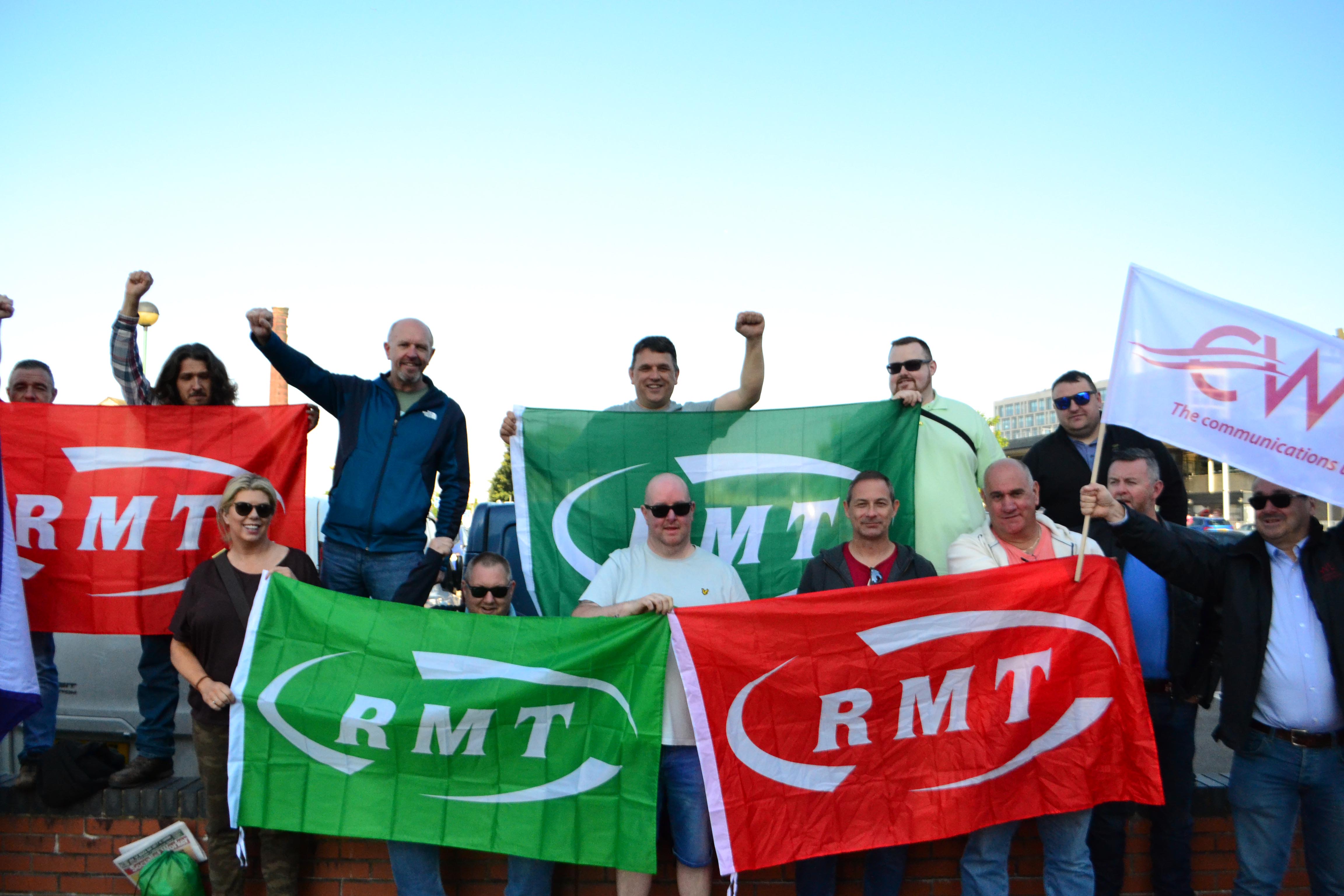
Couriers In Longest Gig Economy Strike Vow To Fight On Against Just Eat Subcontractor
- Stuart Delivery cut basic delivery pay for couriers from £4.50 to just £3.40 in December
- Workers in the IWGB union have been striking against the firm for months in the longest running strike the gig economy as seen
- Just Eat UK, the firm that subcontracts Stuart Delivery, was founded by Welsh entrepreneur David Buttress in 2006
By SC Cook, cover image courtesy of the IWGB
Couriers working for a subcontractor of Just Eat have been on strike for months in their fight against a 24% cut in baseline pay.
Workers for Stuart Delivery, a French firm which is contracted by Just Eat to carry out deliveries in a number of cities, including Cardiff and Swansea, have been on almost continuous strike since December 2021.
Their union, the IWGB, says that the strike “has been going from strength to strength” after workers already forced bosses to pay £10 an hour for waiting times. They are still fighting against the cut in delivery pay, however.
Just Eat UK was founded by the Welsh entrepreneur David Buttress in 2006, who was also the firm’s CEO until 2017.
In summer last year, Stuart Delivery, who are subcontracted by Just Eat, put forward proposals to cut the baseline delivery pay by 24%, from £4.50 to just £3.40.
A campaign by the IWGB union pushed the proposals back but the company imposed the cut in early December, prompting what is believed to be the longest running gig economy strike in British history. The strike involves couriers turning down orders from selected high-profile Just Eat clients during peak hours, such as McDonald’s, KFC and Greggs.
The strike’s focal point has been Sheffield, but has also spread to Darlington and Hartlepool. Not all those who deliver Just Eat orders are impacted, as some are employed directly by the firm and not via Stuart Delivery.
Whilst Stuart Delivery does operate on behalf of Just Eat in Cardiff and Swansea, workers in the Welsh cities are not involved in the strike due to the challenges involved in organising within the gig economy. These couriers will still be impacted by the pay cut, however, and will benefit from any gains made by the strike.
Workers have already scored an important victory in winning one of their demands, which was that workers get paid for when they are waiting for a delivery to be ready. Following strike action, Stuart Delivery offered £10 and hour during waiting times.
But the union says couriers are still worse off, and are demanding that the pay cut be completely reversed.
The pay structure for delivery workers changes depending on the time and area they are in. Workers are paid mileage on top of a base rate of pay but the IWGB union said that even with this, “many couriers across the country are having to work an extra 10-12 hours per week in order to make the same money as before the pay cut.”
The union also highlighted how delivery drivers are being particularly badly hit by the cost of living crisis. Because of the way the pay structure works, workers pay all their own vehicle costs, maintenance and fuel out of their wages.
The IWGB says this makes them doubly hit because what they have to spend at home is increasing, but so is the cost of having to go to work in the first place. This has happened on top of the pay cut.
After 100 days of strike action, Alex Marshall, President (IWGB), said that even Stuart Delivery’s top management “can’t keep up the ridiculous lie that their pay cuts are ‘fairer’.”
“These couriers worked hard through the pandemic, but when the clapping stopped, the couriers saw their bosses take the first opportunity to slash their pay,” Marshall said. “And now, at a time when the cost of living is soaring, this strike is about survival. That’s why we’re seeing the strike continue to spread across the country and actions escalate. We will continue to fight until we get the pay rise the workers not only deserve, but desperately need.”


